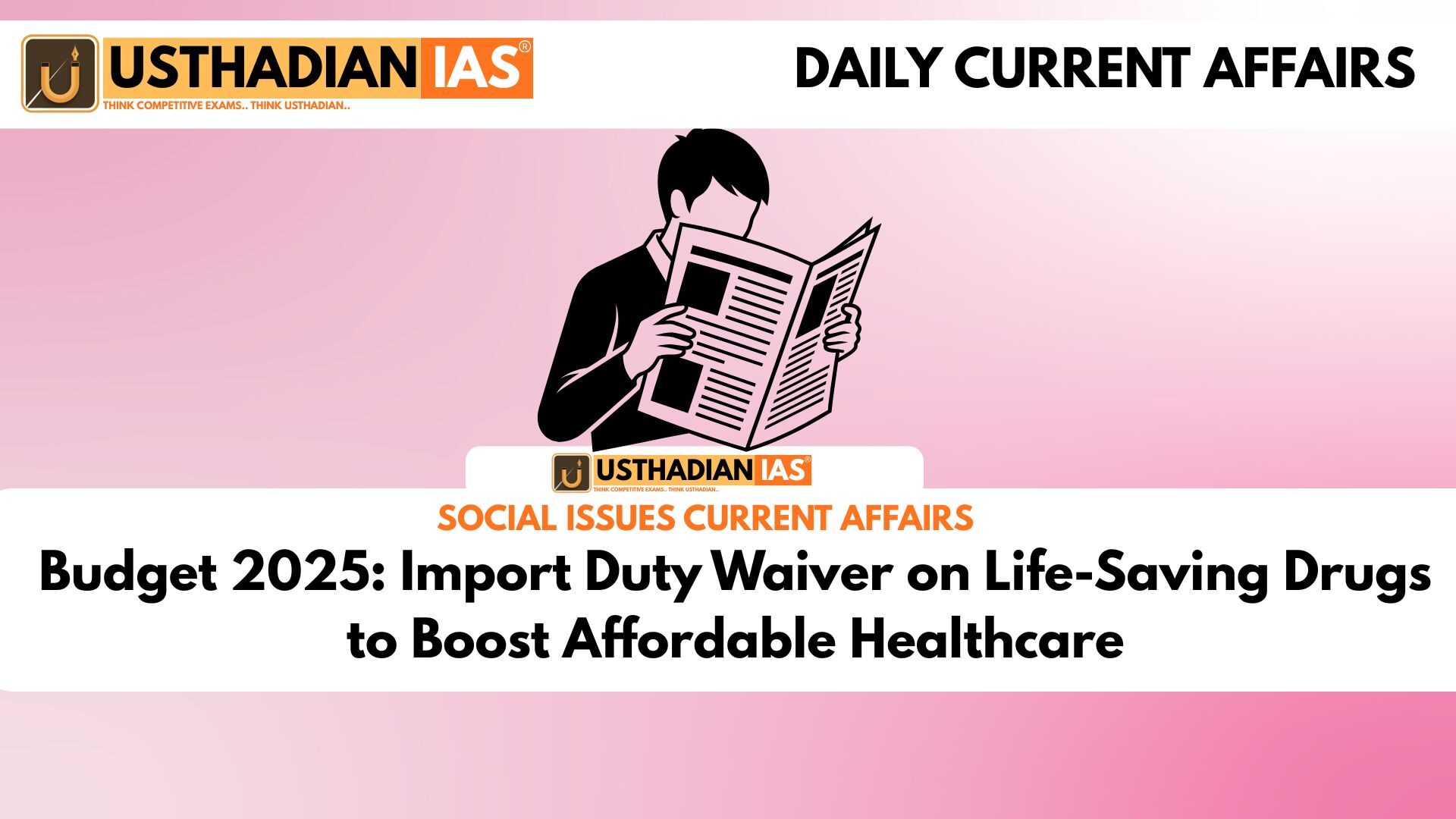A Major Move Towards Affordable Treatments
Budget 2025: Import Duty Waiver on Life-Saving Drugs to Boost Affordable Healthcare: In a significant step toward affordable healthcare, the Union Budget 2025 announced major reforms in the import duties applicable on life-saving drugs. This includes waiving import duty on 36 critical medications, primarily used for cancer and rare diseases, and reducing duty for six others. While such drugs are mostly patented and remain costly, this policy is expected to ease the financial burden on patients who depend on imported medications.
Import Duty Reforms: What’s New?
Under the updated budget:
- 36 essential drugs are now completely exempt from import duty.
- Six life-saving drugs have had their import duty reduced to 5% from 7.5%.
- An additional 37 drugs under patient assistance programs are also duty-free.
Even though the standard basic customs duty on medicines is 5%, these exemptions reflect the government’s prioritisation of health access over revenue.
GST and Medicine Pricing
In India, finished formulations of most drugs attract a 12% Goods and Services Tax (GST). However, to ensure support for critical patients, specific medicines for life-threatening conditions are taxed at a lower 5% rate. This progressive tax policy attempts to strike a balance between healthcare affordability and fiscal responsibility.
Who Benefits the Most?
Interestingly, only about 3% of medicines sold in India are patented and imported. The vast majority—over 97%—are off-patent and locally produced. So while this duty reform affects a small portion of the market, it targets patients with the most severe and rare health conditions, ensuring they can access life-saving treatments without catastrophic health expenditures.
India’s Pharmaceutical Strength
Often referred to as the “Pharmacy of the World”, India ranks third globally in medicine manufacturing. The country produces nearly all forms of off-patented medicines at affordable rates, which are over 50% cheaper than international prices. This cost advantage has made Indian drugs central to global healthcare, especially in developing nations.
The duty waiver does not hurt this sector—it complements it. As imported patented drugs serve a niche, the domestic industry remains dominant, cost-effective, and innovation-driven.
Price Control and Regulation
To prevent exploitative pricing, all medicines, including imports, are governed by the Drugs Price Control Order (DPCO). This regulation, enforced by the National Pharmaceutical Pricing Authority (NPPA), ensures that critical drugs listed in the National List of Essential Medicines (NLEM) have regulated maximum retail prices.
The DPCO continues to be a key mechanism for balancing market interests with patient needs, while the Budget 2025 calls for further simplification of pricing procedures.
Government Commitment to Accessible Medicine
The duty reduction adds to a wider network of policies aimed at universal health coverage. Programs like the Pradhan Mantri Jan Aushadhi Pariyojana (which provides low-cost generics) and Ayushman Bharat (offering free hospital treatment for low-income groups) show the government’s intent to ensure that no patient is denied treatment due to cost.
Charitable groups and pharma companies also contribute through Patient Assistance Programs, helping patients access expensive drugs through subsidies or donations.
Static GK Snapshot
| Topic | Detail |
| Budget Year | 2025 |
| Import Duty on 36 Life-Saving Drugs | 0% |
| Reduced Duty on 6 Drugs | 5% (from previous 7.5%) |
| GST on Medicines | 12% standard; 5% on critical illness drugs |
| Share of Patented Drugs in India | Approx. 3% |
| Regulating Body for Drug Prices | National Pharmaceutical Pricing Authority (NPPA) |
| Key Price Control Framework | Drugs Price Control Order (DPCO) |
| Major Govt Health Schemes | Ayushman Bharat, PM Jan Aushadhi Pariyojna |
| India’s Pharma Ranking | 3rd largest manufacturer globally |








